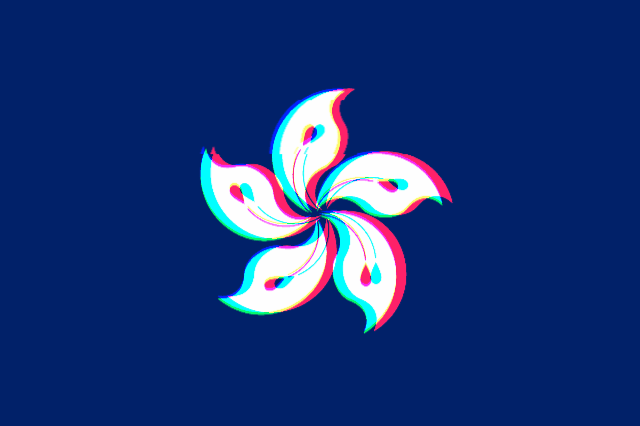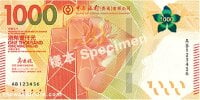This nation is in Vacation Mode for the next 2,209 turns. This nation cannot be attacked or traded with during that time.
| National Factbook |
| Flag: |

|
| Nation Name: |
Confederation of Hong Kong |
| Leader Name: |
Brandon Lei |
| Currency: |

Hong Kong Dollar |
| National Animal: |

Blåhaj |
| History: |
Read my full factbook here: (WIP) https://www.nationstates.net/nation=hongg_kong/detail=factbook/id=main
Hong Kong was first established as a colony of the British Empire ceded on Hong Kong Island from the Xin’an County of the Qing Empire, following the conclusion of the First Opium War in 1841. The colony expanded with the addition of the Kowloon Peninsula in 1860 after the Second Opium War and the New Territories in 1898 following a 99-year lease. British Hong Kong was occupied by the Empire of Japan from 1941 to 1945 during World War II; British administration resumed following the surrender of Japan. In 1997, the entire territory of Hong Kong, and later Portuguese Macau, was transferred back to (the People’s Republic of) China during the Hong Kong handover and was given certain autonomy under the Special Administrative Region of Hong Kong. During World War III, Hong Kong was again occupied, this time by the United States of America during the Invasion of China in which Chinese Administration resumed following the end of the war. The Provisional Government of Hong Kong, and later the current Confederation of Hong Kong was later established during the 2nd Chinese Civil War following the death of Xi Jinping.
Originally populated with only farming and fishing villages, Hong Kong has since became one of the world's most significant financial centres and commercial ports. |
| Geography |
| Continent: |
Asia |
| Land Area: |
43,452.18 sq. km |
| Terrain: |
Hong Kong is on the southern coast of China, on the east side of the mouth of the Pearl River estuary. Surrounded by the South China Sea on every side except the north, the nation holds 1,110.18 km2 (428.64 sq mi) of area (2754.97 km2 if the maritime area is included), which consist of Hong Kong Island, the Kowloon Peninsula, the New Territories, Lantau Island, and a collection of over 200 other islands. The highest point is Tai Mon Shan, being 957 metres above sea level. Urban development is mainly concentrated on the Kowloon Peninsula, Hong Kong Island, and on newly reclaimed land from the sea, which makes up an 15% of the total land, along the coast of the nation.
The undeveloped terrain, mostly found in the northern New Territories, consist of very little flat land and mostly grasslands, woodlands, shrublands, or the very little farmland. Around 35% of the remaining land area are country parks and nature reserves. The area has a diverse ecosystem, being home to over 3,500 species of plants (258 of which are native to Hong Kong) and thousands of insects, avian, and marine species. |
| Highest Peak: |
Tai Mo Shan,
957 meters
|
| Lowest Valley: |
South China Sea,
0 meters
|
| Climate: |
Hong Kong’s climate is subtropical and monsoonal. There are cool, dry winters and hot, wet summers. Between May and November and from July to September, tropical cyclones are occasionally present. The mean temperature of Hong Kong ranges from 13°C in winter to 26°C in summer.
Winters are cloudier, with occasional cold fronts and strong dry winds. Although uncommon, temperatures can drop below 10°C in the southern points and urban areas. Sub-zero temperatures, frost, and snow are rare but occur in the mountainous parts of Hong Kong. Specifically in November and December, there are many pleasant breezes with lots of sunshine and comfortable temperatures. Spring months have high humidity, with fog and drizzle being very common in the southeast. Summers are very hot and humid with occasional showers and thunderstorms. Afternoon temperatures can spike up to 39°C, but generally remains at 31°C. |
| People & Society |
| Population: |
1,307,020 people |
| Demonym: |
Hong Konger |
| Demonym Plural: |
Hong Kongese |
| Ethnic Groups: |
Han Chinese - 89.7%
Filipino - 2.3%
Other - 8.0% |
| Languages: |
Chinese (Cantonese & Mandarin) - 87.6%
English - 46.1%
Other - 2.3% |
| Religions: |
Other/None - 65.3%
Buddhism/Taoism/Confucianism - 33.4%
Sharkist - 1.3% |
| Health |
| Life Expectancy: |
84 years |
| Obesity: |
26.7% |
| Alcohol Users: |
13.1% |
| Tobacco Users: |
9% |
| Cannabis Users: |
11.2% |
| Hard Drug Users: |
0% |
| Economy |
| Description: |
The economy of Hong Kong is a highly developed free-market economy, characterised by almost free port trade and a well-established international financial market. Interest rates are determined by the individual banks in Hong Kong to ensure that they are market driven. Financial regulations are managed by the Hong Kong Monetary Authority.
Its economy is governed under positive non-interventionism. Being highly dependent on international trade and finance, causing the nation to be one of the most favourable places to begin business and trade since British colonization.
Hong Kong features multiple economic strengths, including a sound banking system, virtually no public debt, a strong legal system, ample foreign exchange reserves, rigorous anti-corruption measures, and strong ties with major nations. The Hong Kong Stock Exchange is a favourable destination for international firms and firms from mainland China to be listed, due to Hong Kong's highly internationalised and modernised financial industry. Additional strengths and advantages include the nation’s capital market in Asia, its size, and available financial tools, which are comparable to London and New York City’s. |
| Average Yearly Income: |
$47.30 |
| Gross Domestic Product (GDP): |
$558,222,145.00 |
| GDP per Capita: |
$427.09 |
| Gross National Income (GNI): |
$-214,482,030.00 |
| Industries: |
Hong Kong has what is known as the “Four Key Industries,” with them being financial services, trading and logistics, tourism, and producer services. They have been the driving force of Hong Kong's economic growth, providing impetus to growth of other sectors, and creating employment. Furthermore, the continuous production and exportation of gasoline along with Blåhaj plushies exportations provide strong profit and are major, important industries in the nation. |
| Military |
| History: |
|
| Soldiers: |
0 |
| Tanks: |
0 |
| Aircraft: |
379 |
| Ships: |
116 |
| Missiles: |
0 |
| Nuclear Weapons: |
0 |
| Last Updated: 06/09/2022 04:44 pm |














